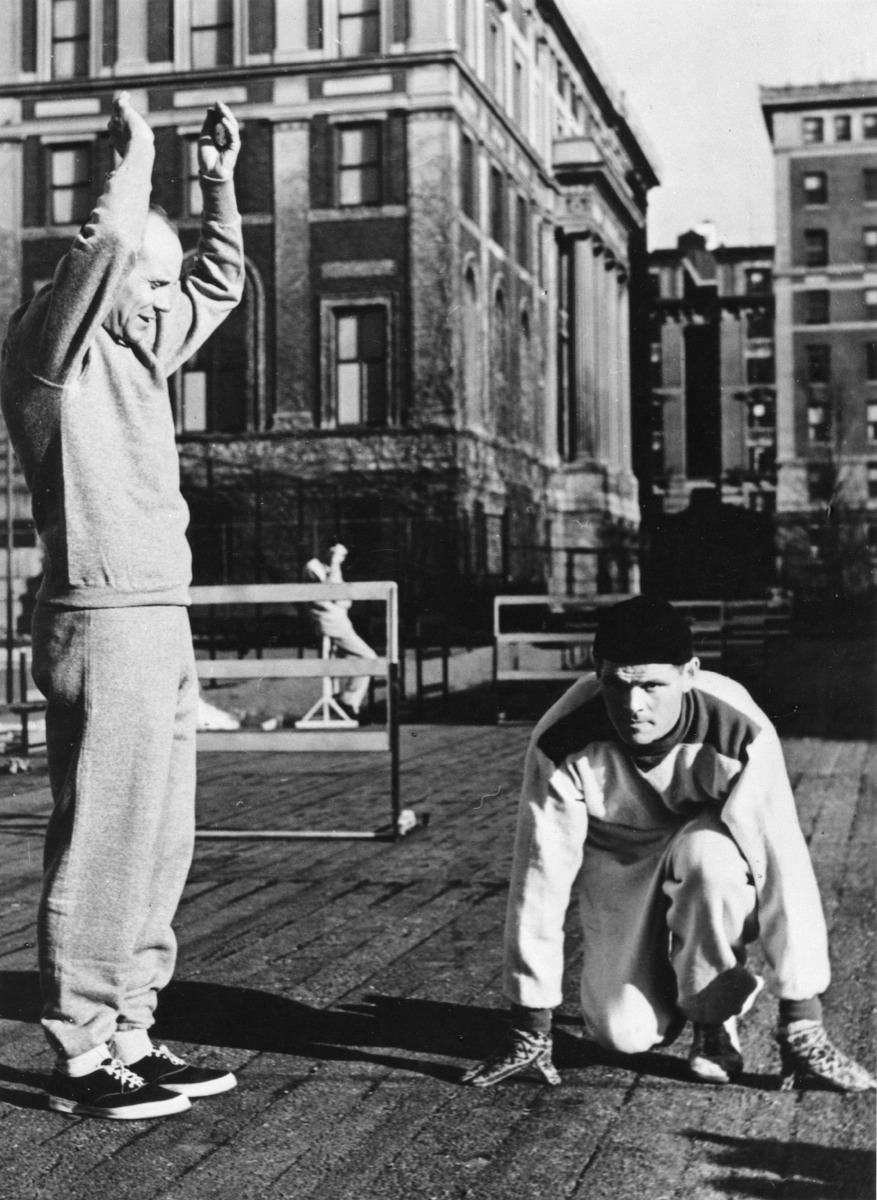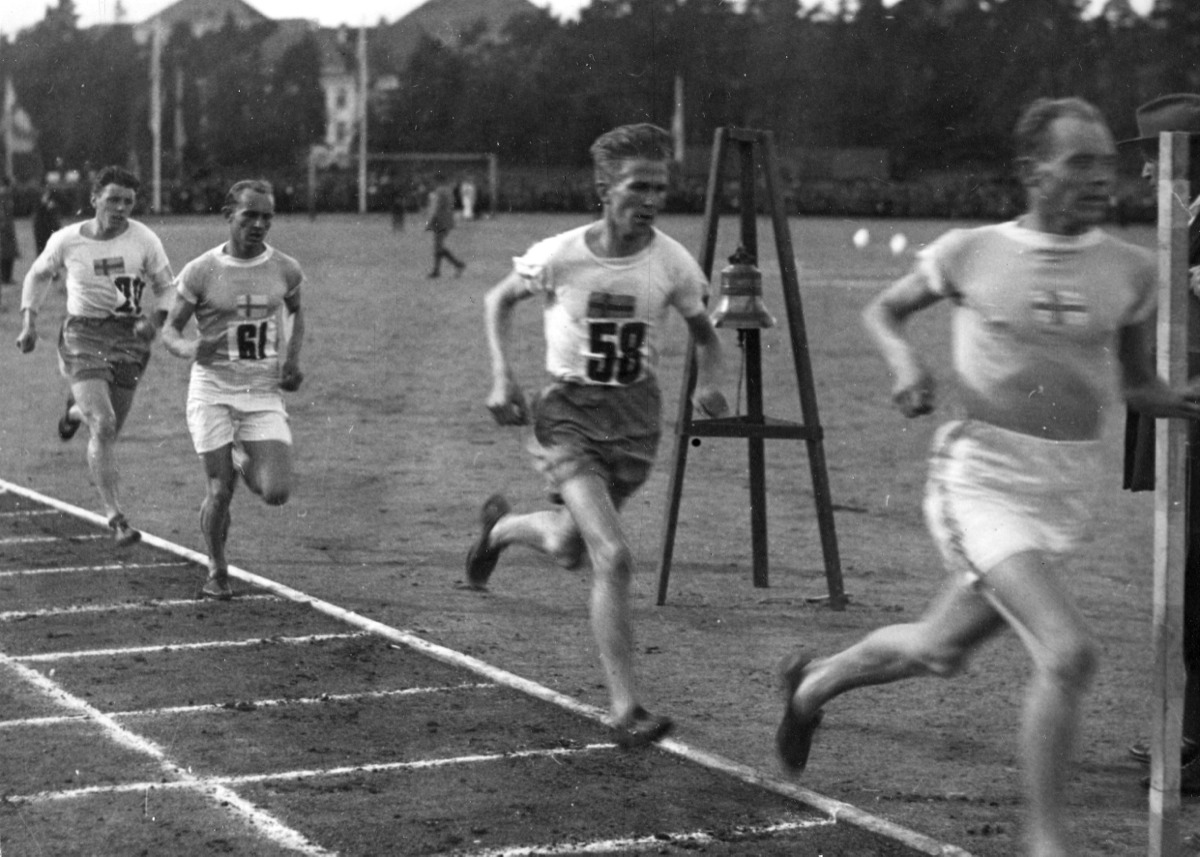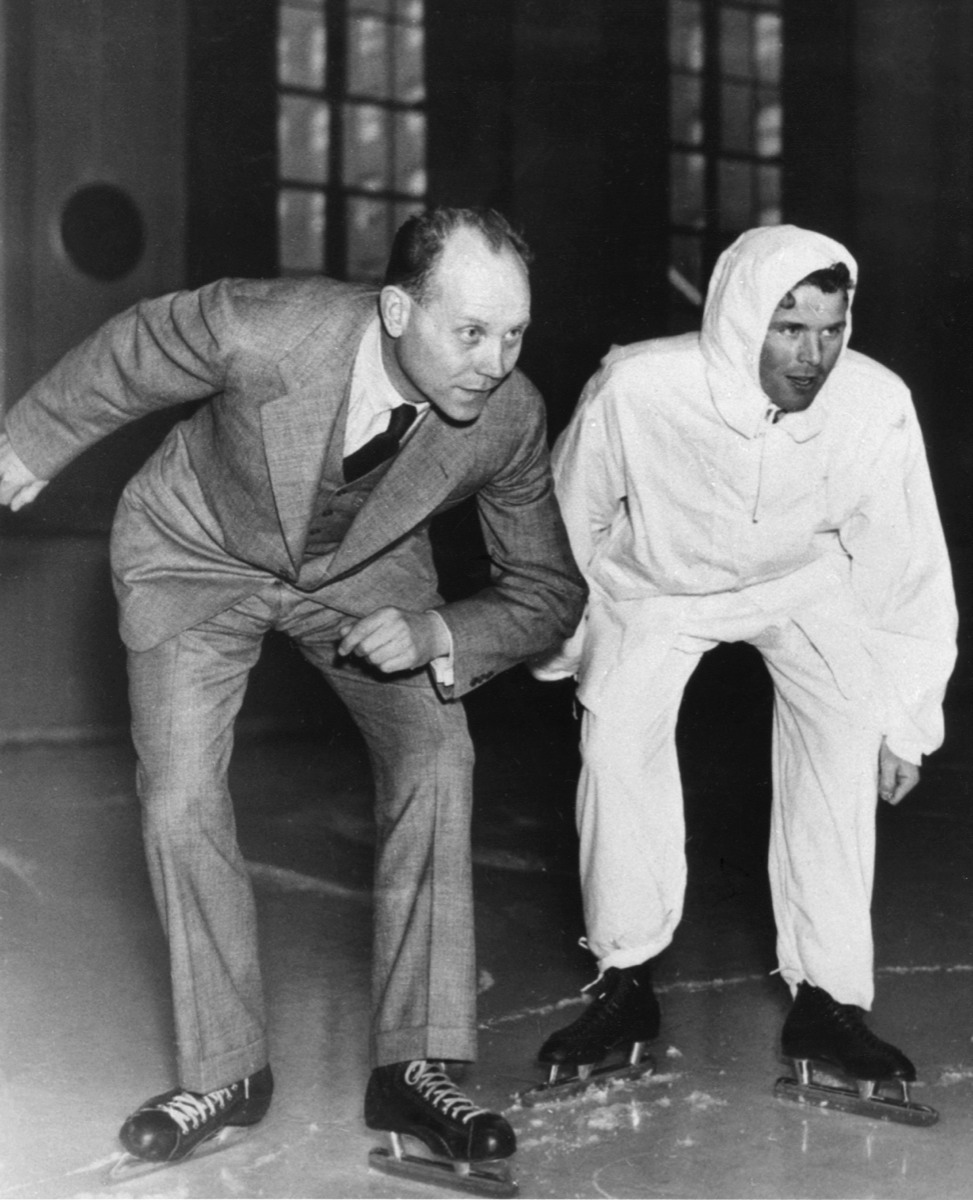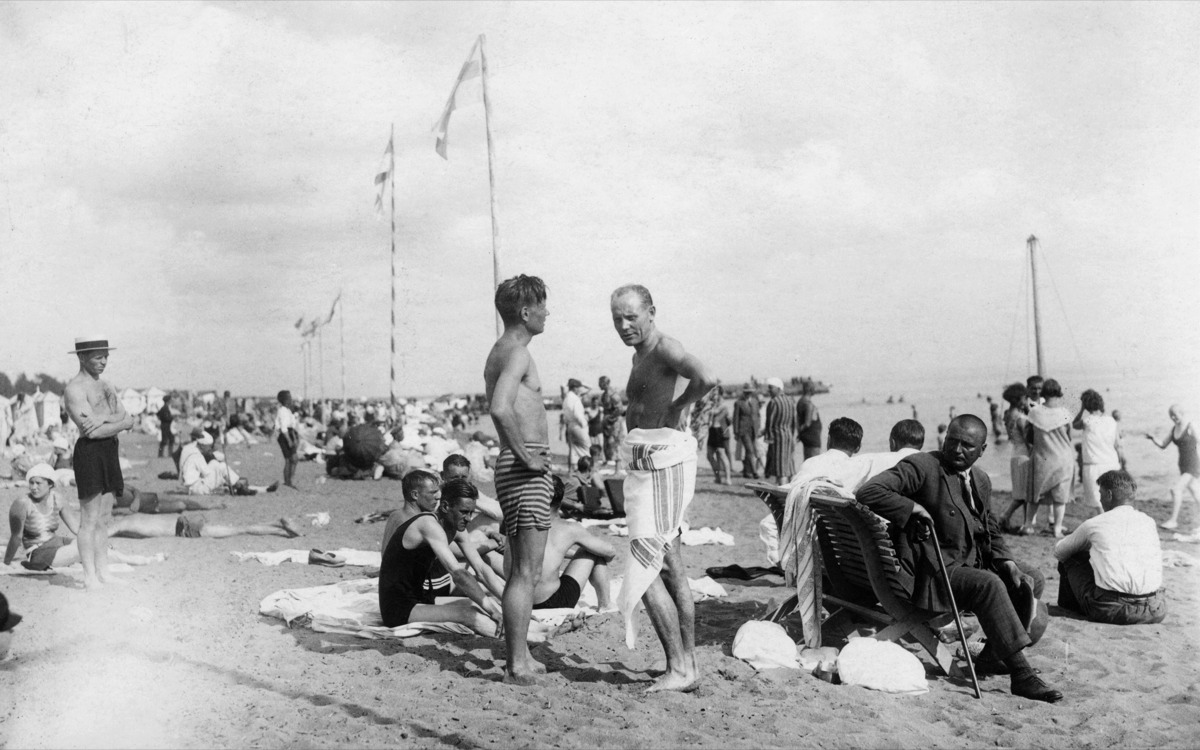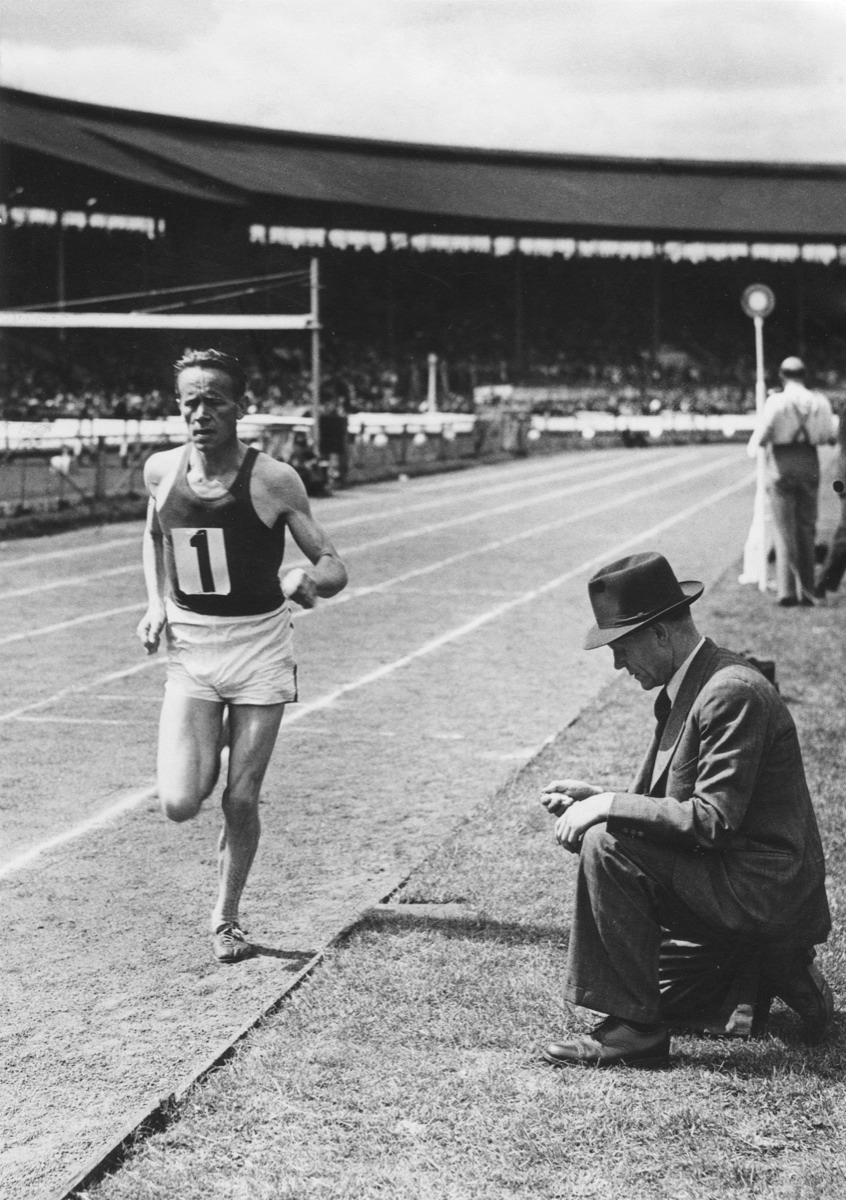PAAVO NURMI AS SEEN BY OTHERS
His imprint on the track world was greater than any man’s before or after. He, more than any man, raised track to the glory of a major sport in the eyes of international fans, and they honored him as one of the truly great athletes of all sports.
Cordner Nelson, Track’s Greatest Champions. Tafnews Press 1986.
In later years Nurmi supplied a critical analysis of his training methods. His daily schedule, more than adequate to the needs of his time, consisted for the most part in long and relatively slow runs, usually preceded by equally long walks. If compared with the often oppressive training methods of present-day runners, Nurmi’s onetime ration naturally seems insufficient, notably as regards quality. In his own admission, speed work really entered his mind only in the later years of his career. Although he had the great merit of perceiving the importance of even pace-running, it may be argued that by this constant thought he obviously limited himself and probably left his potential untapped. Seen in their proper historical perspective, however, Nurmi’s feats can only be described as fantastic.
Roberto L. Quercetani, Athletics : A History of Modern Track and Field Athletics (1860-1990). Vallardi & Associati, Milan 1990.
Paavo Nurmi lives beyond humanity. He is ever more serious, reserved, concentrated, pessimistic, fanatic. There is such coldness in him and his self-control is so great that never for a moment does he show his feelings. (…) What is Paavo Nurmi’s mentality? Why does he seem to lack human qualities? Is he a slave of sport, of training, of records, in such degree that he sacrifices his body and soul with no thought, regard or free moment spared for the outside world? Is he not an amateur only by name, this athlete of 27 years whom the Finns call a student engineer and the Swedes a professional? The future will undoubtedly answer these questions. In any case, it is to be doubted that Nurmi can maintain his present situation for very long. We have now found the Finnish champion thinner, ruder, even more silent and withdrawn than before, more disincarnate. This extraordinary runner who, for one reason or another, maintains a formidable, intensive fanaticism for sport, will soon have to give us an answer to the living mystery that he constitutes.
Gabriel Hanot, Le miroir des sports, 1924.
It is quite hard in most instances to fix a label on an athlete – to say that a certain image is constantly true to the performer’s character. But for Paavo Nurmi it is easy – both the legends and the known facts of this greatest of all athletes show a strong, silent, hard and confident individual. We have put a great deal of time into research upon the ‘Phantom Finn’ – to attempt to separate the fantasies from the fact. But the man was capable of so many incredible feats, and seemed not to discourage the many legends (certainly, even now, he makes no attempt to confirm or deny) that the ‘image’ becomes the man. His name, Paavo Nurmi, was known to the whole world. So were the names which newspapers gave him, ‘Peerless Paavo’, ‘The Phantom Finn’. The other runners in Finland, athletics experts, journalists, knew him not much better. Even to them, he was never quite real. He was enigmatic, sphinx-like, a god in a cloud. It was as if he was all the time playing a role in a drama. Yet, often the man seemed true to the legends which were woven around him. Perhaps, even, he encouraged them. No one knew… How was it that Paavo Nurmi stood apart, stern and silent, with uncompromising self-discipline, with white-hot ambition, bearing the closest resemblance, in athletics, to Napoleon Bonaparte?
Ron Clarke kirjassa Ron Clarke & Norman Harris, The Lonely Breed. Pelham Books 1967.


